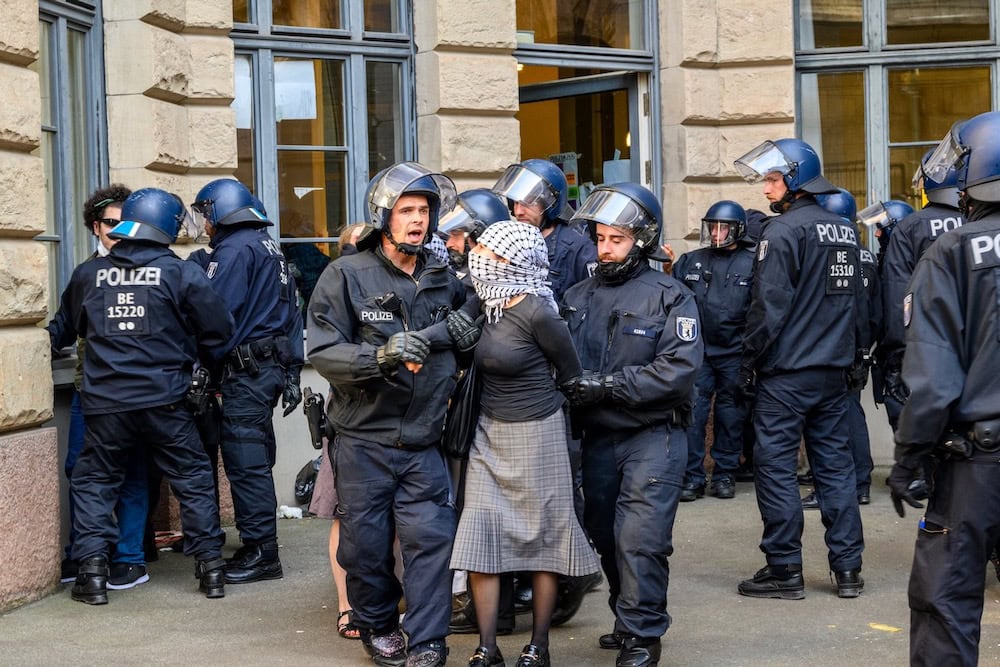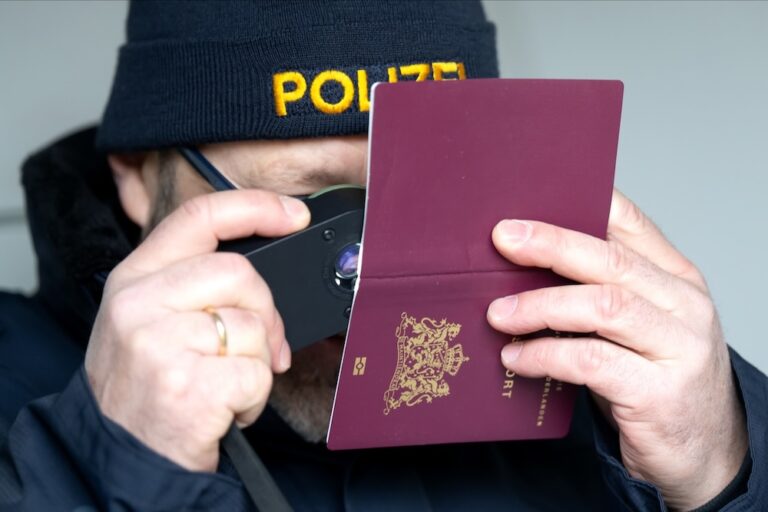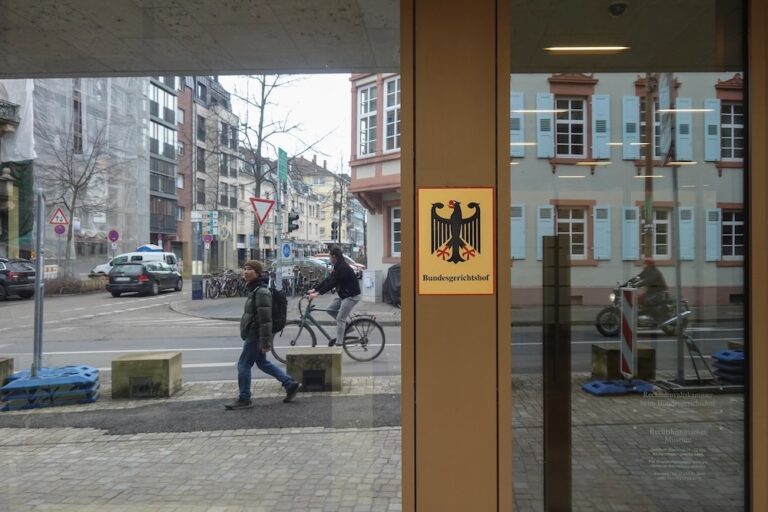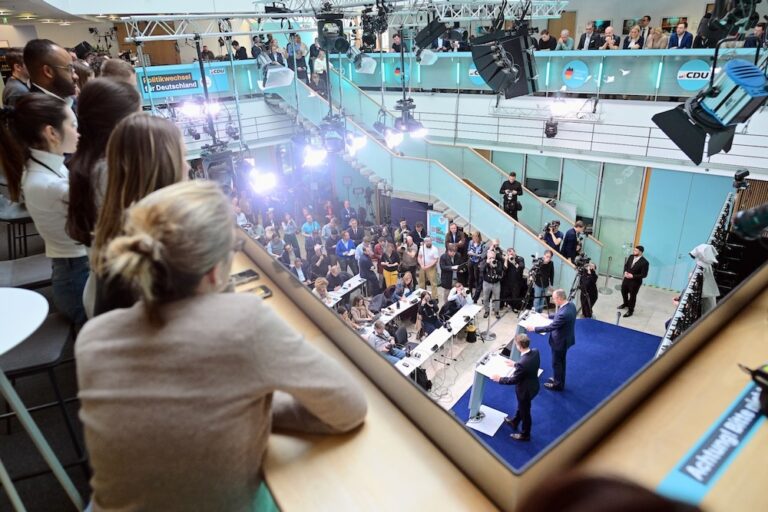"The policeman suddenly attacked me from behind. He punched me twice in the face before pushing me to the ground with his knee behind my back. I kept shouting that I was a journalist" - Ignacio Rosaslanda
This statement was originally published on europeanjournalists.org on 3 June 2024.
The undersigned international media freedom, free expression, and journalist organisations call on the German authorities to conduct a thorough investigation into the physical attack by Berlin police on Mexican video journalist Ignacio Rosaslanda while he was covering a police operation. The journalist, who is working for the daily Berliner Zeitung, was not only prevented from reporting and physically abused but was also arbitrarily detained for hours without medical care. We urge authorities to take appropriate measures to ensure that the attack does not go unpunished and strengthen the protection of journalists who are vulnerable targets during demonstrations.
On 23 May 2024, Mexican journalist Ignacio Rosaslanda was at the Humboldt University’s Institute of Social Sciences to cover protests by pro-Palestinian activists who had occupied the building. The police intervened to evacuate the activists. Rosaslanda, who was filming the evacuation and had identified himself to the police as a member of the press, was physically attacked by a Berlin policeman. The incident was recorded by the journalist.
“The policeman suddenly attacked me from behind. He punched me twice in the face before pushing me to the ground with his knee behind my back. I kept shouting that I was a journalist. I even had my journalist card around my neck and my camera in one hand. They could see that I was documenting,” Rosaslanda told the MFRR partners. According to Rosaslanda, when he was on the ground, the policeman even said to him: “Freedom of the press is not without restrictions, your colleagues are outside and have done their work and are not handcuffed”.
Although Rosaslanda tried to clarify the reason for his aggression by the police, he was told that he was the one who had attacked and resisted arrest. “I was then handcuffed for at least an hour and held in the building university for at least three hours for questioning”. Rosaslanda, who was injured, was refused immediate medical attention. The journalist had to be taken to hospital by one of his colleagues after the interrogation.
On 24 May 2024, the editors of Berliner Zeitung strongly condemned the violence against Rosaslanda and the obstruction of his work by the Berlin police. “An attack on a journalist is an attack on the freedom of the press. This is all the more serious when the attack comes from the state,” wrote the Berliner Zeitung. Rosaslanda filed a lawsuit for assault and abuse of authority.
“We condemned and made the attack visible via our X account. We will also talk with the Berlin police and call for clarification on this attack. The Berlin police had only declared to various media that they ‘check’ investigations,” emphasises Renate Gensch, regional chairwoman of the German Union of Journalists (dju) in ver.di Berlin-Brandenburg and member of the national board of dju.
“As a Press representative, Ignacio Rosaslanda had only wanted to do his job. We condemn the violence against a press colleague by the Berlin police in the strongest possible terms. We also call for even stronger cooperation between the police and journalists’ associations and press representatives to prevent such incidents,” said Andrea Roth, deputy chairwoman of the Bavarian Journalists’ Association and EFJ Steering Committee member.
The MFRR partners are concerned about police violence because this unacceptable behaviour encourages and normalises hatred against journalists, who are already being targeted by protestors in pro-Palestine demonstrations, ranging from covering up or damaging cameras, harassment of the press, threats of physical violence, and assaults. Of the seven physical attacks on journalists during demonstrations, recorded by the Media Freedom Rapid Response platform, four journalists were injured at protests related to the Israeli-Palestinian conflict. Most recently, a freelance photographer was physically assaulted with a poster at a pro-Palestinian demonstration in Berlin and suffered a bleeding wound. Reporters from Sachsen Fernsehen were brutally beaten in Leipzig in January.
The MFRR partners stand in full solidarity with the journalist Ignacio Rosaslanda and all journalists subjected to pressure and threats to silence them. We urge the relevant authorities to take immediate steps to protect the journalists, including a swift and thorough investigation into the police attack on Rosaslanda.
This statement was produced by EFJ as part of the Media Freedom Rapid Response (MFRR), a Europe-wide mechanism which tracks, monitors and responds to violations of press and media freedom in EU Member States and Candidate Countries.




